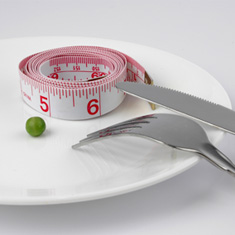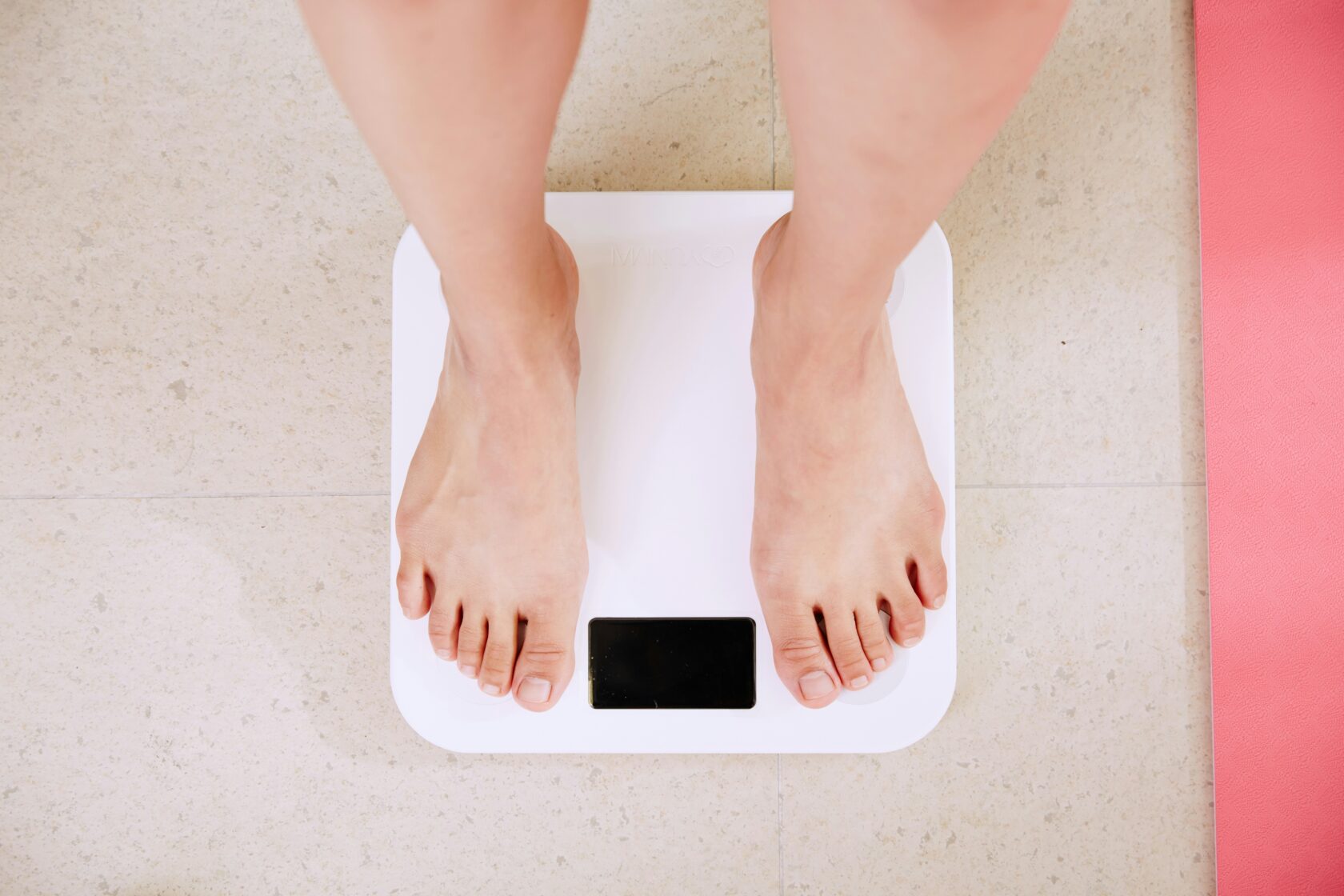 Although cutting back on desserts and checking the calorie and fat grams on food labels is a great start when you’re trying to get rid of those love handles, you may be making some unwise decisions without even knowing it.
Although cutting back on desserts and checking the calorie and fat grams on food labels is a great start when you’re trying to get rid of those love handles, you may be making some unwise decisions without even knowing it.
If you think that the giant low-fat muffin you have every morning is harmless, think again. Check out the following 18 common diet mistakes and find out whether your eating habits are undermining your efforts.
1. Skipping Breakfast
Skipping breakfast might seem like an easy way to cut calories, but it often leads to overeating later in the day. A balanced breakfast, like two pieces of whole-wheat toast topped with a teaspoon of peanut butter and banana slices, jump-starts your metabolism and prevents mid-morning hunger pangs.
2. Not Tracking Food Intake
You don’t need a fancy app to track what you eat, but keeping a food diary can be a game-changer. Without it, you might consume more calories than you realize, derailing your weight loss efforts.
3. Low-Fat Snack Overindulgence
Many low-fat snacks are packed with sugar, making them higher in calories. A jumbo-sized, fat-free muffin can pack up to 700 calories! Always check labels and keep snacks under 300 calories.
Key Takeaways
| Dieting Mistake | Why It Matters | Solution |
|---|---|---|
| Skipping Breakfast | Leads to overeating later | Eat a balanced breakfast |
| Not Tracking Food Intake | Unawareness of calorie consumption | Keep a food diary |
| Low-Fat Snack Overindulgence | Often high in sugar and calories | Check labels, limit portion sizes |
| Not Drinking Enough Water | Dehydration, mistaken hunger | Drink 8 glasses daily |
| Opting for Fruit Juice | Higher in calories, lacks fiber | Eat whole fruits instead |
| Choosing Veggie Dishes | Often cooked in oil, creamy sauces | Ask for grilled or steamed veggies |
| Fish Sandwiches | Breaded, fried, high in fat | Choose grilled chicken subs |
| Avoiding Snacks | Leads to overeating at meals | Choose healthy snacks like veggies |
| No Desserts | Feelings of deprivation | Enjoy small portions of desserts |
| Loving Wraps | High in calories from tortillas and toppings | Use small tortillas, low-fat sauces |
| Avoiding Fat | Important for nutrient absorption | Eat healthy fats like omega-3s |
| Avoiding Carbs | Main source of energy | Include carbs in a balanced diet |
| Starving Yourself | Slows metabolism, health risks | Eat enough to keep metabolism active |
| Unrealistic Goals | Difficult to maintain, temporary results | Aim for slow, steady weight loss |
| Overeating Post-Workout | Misestimating calorie burn | Track food intake, even on workout days |
| Eating Quickly | Overeating before feeling full | Eat slowly, savor food |
| Eating Everything on Your Plate | Lack of portion control | Practice portion control at home and out |
| Excessive Coffee | Dehydration, sleep disturbances | Drink water instead |
4. Not Drinking Enough Water
Dehydration can cause fatigue and make you think you’re hungry when you’re actually thirsty. Aim for at least eight 8-ounce glasses of water daily. It’s easier than it sounds—try a glass when you wake up, another after every bathroom break, one at lunch and dinner, and one before bed.
5. Opting for Fruit Juice
Fruit juice might seem healthy, but it’s higher in calories and lacks the fiber of whole fruits. Choose whole fruits to stay fuller longer and avoid unnecessary calories.
6. Choosing Veggie Dishes
Vegetables are healthy, but when they’re cooked in oil or covered in creamy sauces, they can become calorie bombs. Ask for grilled or steamed veggies to keep your meal light and nutritious.
7. Fish Sandwich Fiasco
A breaded and fried fish sandwich drenched in mayonnaise can be worse than a burger. Opt for grilled chicken subs instead for a healthier alternative.
8. Avoiding Snacks
Skipping snacks can lead to overeating at meals. Instead, choose healthy snacks like veggies with low-fat dip or air-popped popcorn seasoned with garlic salt or chili powder.
9. Never Having Dessert
Banning desserts can lead to feelings of deprivation and eventual binging. Allow yourself a reasonable portion of dessert regularly to keep your diet balanced.
10. Loving Wraps
Large tortillas can be calorie-heavy, especially with fatty toppings. Use small tortillas and low-fat sauces to enjoy a healthier wrap.
11. Avoiding Fat
Fat is essential for nutrient absorption and proper body functions. Focus on healthy fats like those found in fish, and avoid unhealthy saturated fats.
12. Avoiding Carbs
Carbohydrates are your body’s main source of energy. Include them in your diet in balanced amounts to avoid the risks associated with high-protein diets.
13. Starving Yourself
Crash diets slow down metabolism and lead to fat storage. Instead, eat enough to keep your metabolism active and avoid health risks like gallstones and cardiac complications.
14. Setting Unrealistic Goals
Rapid weight loss is hard to maintain. Aim for slow and steady weight loss to ensure long-term success and avoid yo-yo dieting.
15. Overeating Post-Workout
It’s easy to overestimate how many calories you burn during exercise. Remember, exercise is for health and weight loss, not a free pass to eat more. Track your intake even on workout days.
16. Eating Quickly
Eating too quickly can lead to overeating since it takes about 20 minutes for your brain to signal fullness. Slow down and savor your food to help control portions.
17. Eating Everything on Your Plate
Restaurant portions are often too large. Practice portion control by asking for a doggy-bag before your meal arrives or share with a friend.
18. Drinking Tons of Coffee
Too much caffeine can lead to dehydration and sleep disturbances. Drink water to stay hydrated and healthy.
Internal Links for Further Reading:
By eliminating just one of these dieting mistakes each week, you can save hundreds of unnecessary calories and make sustainable changes to your diet. Although it might seem challenging at first, incorporating these tips into your routine will yield noticeable results over time.


